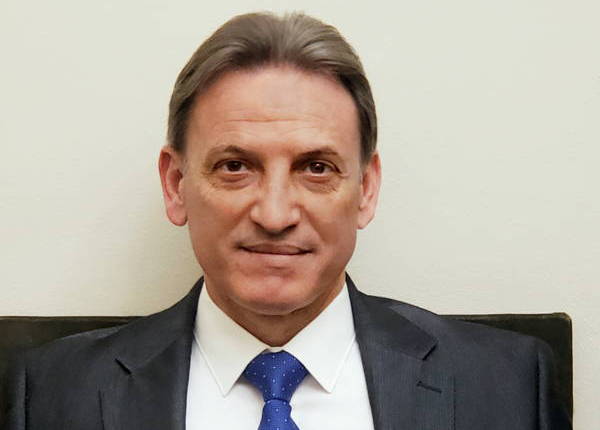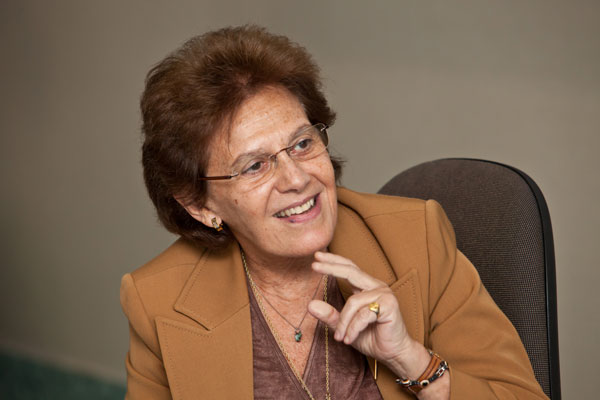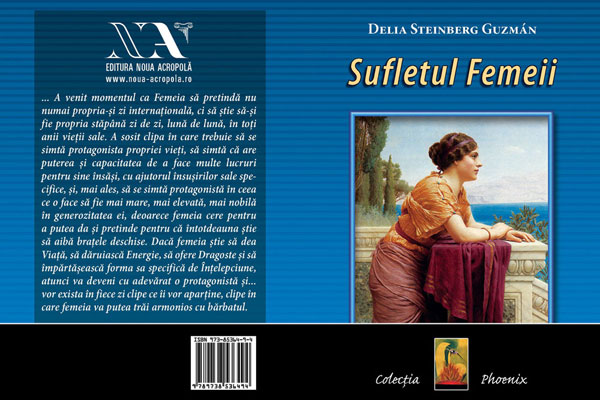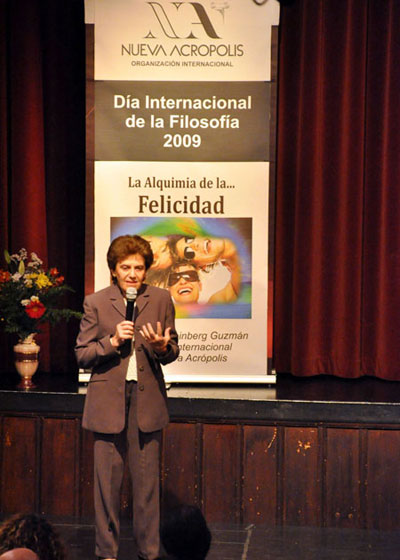International President
Carlos Adelantado Puchal

Carlos Adelantado was born in Castellón (Spain) on January 1, 1964.
He studies Philosophy at the University and that inclination leads him to know the School of Philosophy of New Acropolis in his city, at the age of 19, enthusiastically getting involved in his studies and organization. He takes over the management of this headquarters for 23 years, launching cultural and social volunteer projects at the Castalia Cultural Center. He also took over the coordination of the Organization New Acropolis in the Levante area. At the same time, he is dedicated to the study and teaching of Philosophy, reaching the degree of “Specialist in Philosophy of East and West”, awarded by the Organization New Acropolis International, based in Brussels.
He has taught different subjects in the curriculum of the New Acropolis School of Philosophy for more than 30 years. He also participates in congresses and conferences, highlighting the way to put philosophy into practice and its need to adequately focus on the problems of today’s world.
In 2013 he moved to Madrid, to take over the management of New Acropolis in Spain and carry out management responsibilities at the national level. He promotes dissemination activities of the rich artistic and historical heritage of the city of Madrid, along with other cultural dissemination projects.
In 2017 he was appointed Deputy International President of the OINA and in 2020 International President, a position he currently holds.
Click Here so see a recorded Interview with the International President of New Acropolis

Delia Steinberg Guzmán was born in Buenos Aires (Argentina) in 1943. In 1972 she moved to Spain and in 1975 was granted Spanish nationality.
Honorary President
Delia Steinberg Guzmán
Studies and Qualifications
She studied music from an early age and, at the age of 17, graduated from the National Conservatory of Music in Buenos Aires as a Teacher of Piano and Composition.
For several years she continued to perfect her technique under the Argentinean concert pianist Flora Nudelman and later under the Russian master Hubert Brandenburg.
She also obtained a degree in Philosophy from the University of Buenos Aires.
Her interest in culture and education as a means of personal development led her to continue her studies in other disciplines. She has taken specialist courses in archaeology, history, history of music, bioenergetic medicine and other natural therapies.
Music Career
At the age of 10, she performed her first public concert and since then has often been selected to perform at piano events organized by different organizations, such as Asociación Cristiana de Jóvenes, Jóvenes Concertistas Argentinos, Ateneo de Cultura Artística, Nuevos Valores Musicales, Asociación Harmonicus, Department of Culture of the Ministry of Education of the Argentine Republic, Promociones Musicales and others, both public and private.
She has given numerous concerts at different venues, as well as on radio and television, both in Argentina and in other American countries, obtaining excellent reviews in the press.
On the occasion of the 30th Anniversary of the death of Maurice Ravel and together with other artists and journalists, she participated in the tribute to the late composer organized by the Argentinean Institute of Engineers on 7 July 1967.
In 1988, in order to promote musical studies on an international scale, she founded the Tristan Music Institute, where she gives piano classes. Currently, the Tristan Institute operates in Spain, Brazil, France, Israel and Germany, with an emphasis on teaching activities.
Since that time she has also been running music appreciation courses in Spain, including courses dedicated to the works of Bach, Mozart, Wagner, Chopin and Schumann.
In 1982, in order to promote new values in music, she instituted the International Piano Competition which now bears her name, forming part of the jury and promoting the artistic careers of young music professionals. The Delia Steinberg International Piano Competition is held annually in Madrid (Spain) and attracts young pianists from all over the world.
Teaching and Research
In 1966 she began to study the complete syllabus of the School of Philosophy of the International Organization New Acropolis under the guidance of its founder, Professor Jorge Angel Livraga. She subsequently joined the teaching staff of the Institution, giving classes on History of Philosophy, Moral Philosophy, History of Religions, Eastern Philosophy, Psychology, Metaphysical Aesthetics, Oratory and all the other topics which are covered in the New Acropolis Program of Studies. She has also produced teacher training manuals for the above-mentioned subjects.
Her work as a teacher has also expanded to include giving training courses for other teachers and educators within New Acropolis.
She has delivered courses, lectures and seminars in different countries across Europe, America and Asia on topics such as “Common Features in Ancient Civilizations”, “Pain and its Causes”, “Esoteric Traditions about the Origins of Man and the Universe”, “The Keys to Astrology”, “Philosophy for Living”, “The Anguish of Youth”, “Astrology and Psychology “, “Egypt: Thought, Life and Religion”, “The Initiatic Way of Santiago”, “The Legacy of the Templars”, “The Metaphysical Beauty of Woman”, “Tradition and Time”, “Music Therapy”, “Colour Therapy”, and many more.
In 1977 she founded and promoted a Short Story Competition in Spain which has now been through 25 editions, and has formed part of the panel of judges alongside important figures in the genre of literary narrative.
From 1972 to 1991 she was the director of this Institution in Spain, during which time the cultural activity of New Acropolis spread to more than thirty cities around the country.
Throughout this time she promoted teaching and research activities in several areas:
- For children and teenagers: Camping trips, excursions, story-telling, introductory workshops to philosophy as an educational tool, etc.
- Medicine and holistic therapies, with continuing development and research programs for doctors, health technicians, therapists, etc., including workshops given by leading professionals on Acupuncture, Laser Therapy, Homeopathy, Magneto-therapy, Bioenergetics, etc.
- Social action: Training courses and workshops for volunteers, including active participation in ecological and social programs, disaster relief, animal welfare centers, etc., in association with official organizations.
All of these initiatives have had far-reaching repercussions, both nationally and internationally.
From 1975 to 1991, she was also the coordinator of the activities of New Acropolis in Europe. In 1991, after the death of the founder, Professor Jorge Angel Livraga, she was elected International President of New Acropolis. In this capacity she has been responsible for managing and coordinating the cultural and educational work of this International Association in all the countries in which it is established.
Publications
She has published many articles in magazines and newspapers on topics related to philosophy, music, history and culture in general.
In 1972 she founded and continues to direct the Spanish magazine “Cuadernos de Cultura” (Cultural Notebooks) in which she wrote many articles and serials on a theme, such as “Between Ourselves”, “At the End of the Day “, “A Story to Tell”, and “Let’s Ask Ourselves…” – dedicated to promoting the practical application of philosophy in daily life.
Since 2000, she also has also been editor of the cultural magazine “Sphinx”, which is published throughout Spain and in various countries in Latin America.
Published Books and Handbooks

She has written more than thirty books and handbooks about Practical Philosophy, Psychology, Ancient Civilizations, Astrology, etc., including the following:
- Los Juegos de Maya (The Games of Maya) (Madrid, 1st ed. 1980, 2nd ed. 1982)
- Hoy vi… (Today I saw…) (Madrid, 1st ed.)
- Me dijeron que (I was told…) (Madrid, 1st ed. 1984)
- El héroe cotidiano (The Everyday Hero) (Madrid, 1st ed. 1996, 2nd ed. 2002)
- Amor platónico, amor sexual (Platonic love, sexual love) (Lima, 1998)
- ¿Por qué creer en la reencarnación? (Why believe in reincarnation? (Lima, 1999)
- Razones para ver la vida con optimismo (Reasons to look at life with optimism) (Lima 1999)
- El arte de saber elegir (The art of knowing how to choose) (Lima, 2002)
- La belleza metafísica de la mujer (The metaphysical beauty of woman) (Lima 2002)
- El alma de la mujer (The woman´s soul) (Madrid, 2002)
- Libertad e inexorabilidad (Freedom and inexorability) (Madrid, 2002)
- El carácter según los astros (Character according to the Stars) (Madrid, 2002)
- Esoterismo práctico (Practical Esoterism) (Madrid, 2002)
- La vida después de la muerte (Life after Death) (Madrid, 2002)
- Filosofía para vivir (Philosophy for Living) (Madrid, 2005)
- Qué hacemos con el corazón y la mente? (What do we do with Heart and Mind?) (Madrid, 2005)
- Soy libre realmente? (Am I really free?) (Lima, 2005)
- Pensamientos (Thoughts) (Lima, 2007)
All of them are published in Spanish and many of them have been translated into other languages such as French, English, German, Turkish, Russian, Czech, Romanian, Portuguese, Greek, etc.
Since 1995 she has directed the publication of a Yearbook with a summary of activities carried out by New Acropolis in the forty-eight countries where it is present. The Yearbook reflects the Organization’s direct action and participation in society, in the fields of culture, ecology, music, medicine, martial arts and social issues, with the spirit of unity and diversity that characterizes it and which she has worked to promote and bring into reality for more than forty years.
The Yearbook of Activities is published in Spanish and English and is distributed globally to both individuals and institutions.
Awards
In recognition for her work as Director of New Acropolis, she was awarded the Silver Medal for Arts, Science and Literature in 1980 by the Academic Society for Education and Encouragement, accredited by the Académie Française.
Letter from the President
 A message from the International President
A message from the International President
PHILOSOPHY FOR TIMES OF CRISIS
We cannot avoid referring to the financial crisis which in one way or another is affecting so many people in the world.
On the one hand we have discovered that as a result of the socio-economic model of the last few decades, the cycles of material progress have more influence on our lives than we might have imagined or desired.
On the other hand, the crisis has been an interesting opportunity to discover that we human beings have other values to rely on in difficult moments. Specifically, philosophy as a way of thinking and living has helped us to look again at the eternal questions and to rediscover the valid answers which the passage of time has not undermined; quite the contrary.
A great question mark continues to hang over the knowledge of who we are, why we are in the world, what our role is in this history which is being created day by day.
It would be sad to believe that our only function is to survive as best we can or, at best, to strive to attain a better level of survival, with more wealth than we can sometimes use.
Essential material goods are absolutely necessary. But there are many people who own more than we can imagine and, nevertheless, have not managed to dispel pain or unhappiness.
On the other hand, there are those who have the bare necessities and sometimes less, and have attained a great inner serenity by developing true human values.
As philosophers who aspire to right knowledge, we have found that the good, the beautiful, the true and the just continue to be indispensable elements for attaining happiness.
Philosophy and happiness have many things in common.
And crises are special situations in which we can discover these coincidences, they are situations which can help us to overcome difficulties and overcome our limits of moral and spiritual growth.
Although we have quoted them on many occasions, the famous words of the scientist and philosopher Albert Einstein bring us back to a sense of the meaning of life:
“A crisis can be a real blessing to any person, to any nation. For all crises bring progress.
Creativity is born from anguish, just as the day is born from the dark night. It is in crisis that inventiveness, discoveries and great strategies are born.
He who overcomes crisis overcomes himself without being ‘overcome’. He who blames his failures and poverty on a crisis neglects his own talent, and shows more respect for problems than for solutions…
Without crisis there are no challenges. Without challenges, life becomes a routine, a slow agony. Without crisis there are no merits…
Let us put an end, once and for all, to the only menacing crisis, which is the tragedy of not being willing to overcome it.”
In harmony with these ideas, New Acropolis is on the side of talent and creativity; it promotes the opportunities offered by a living philosophy which enables individual drive to be used for the benefit of humanity as a whole.
